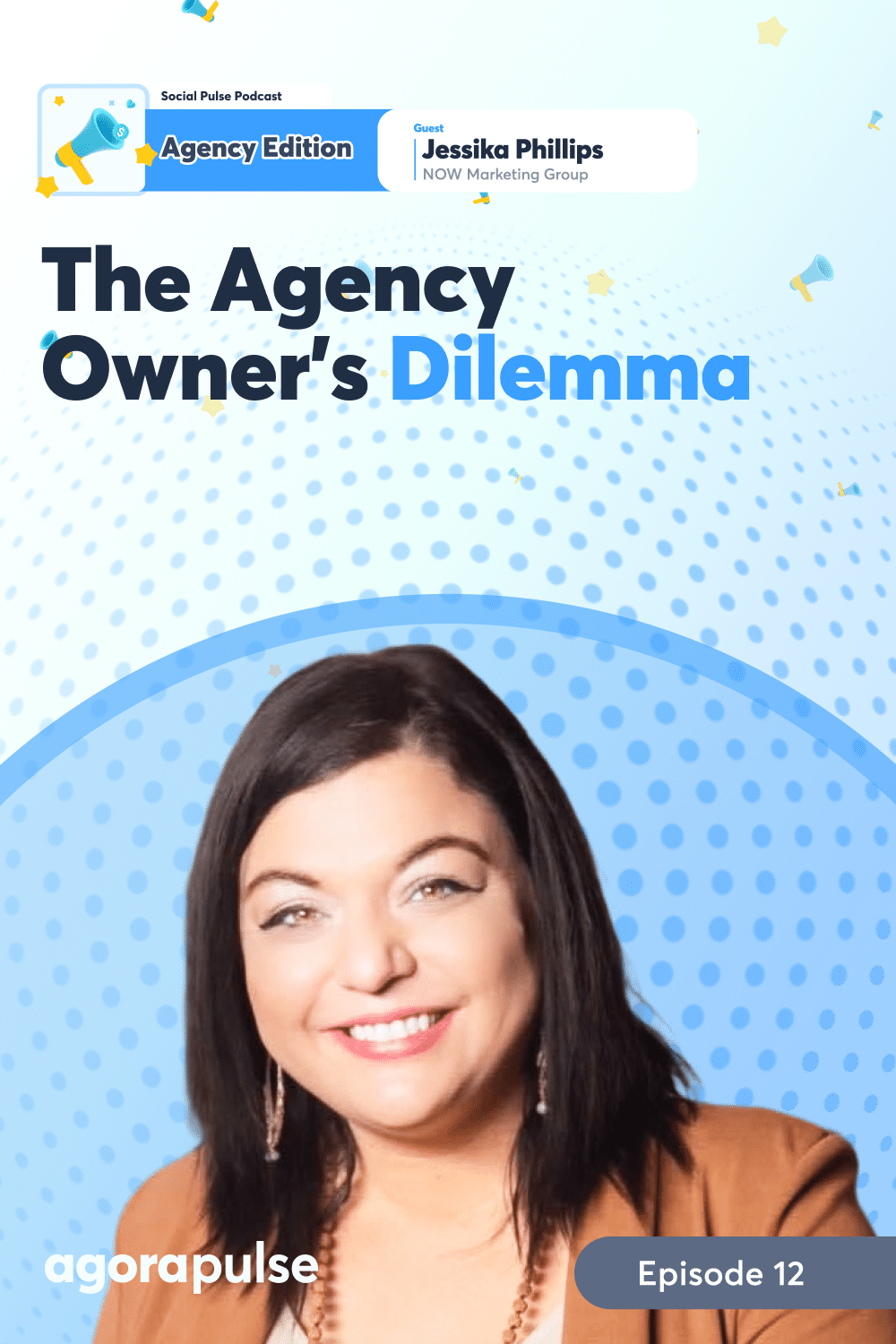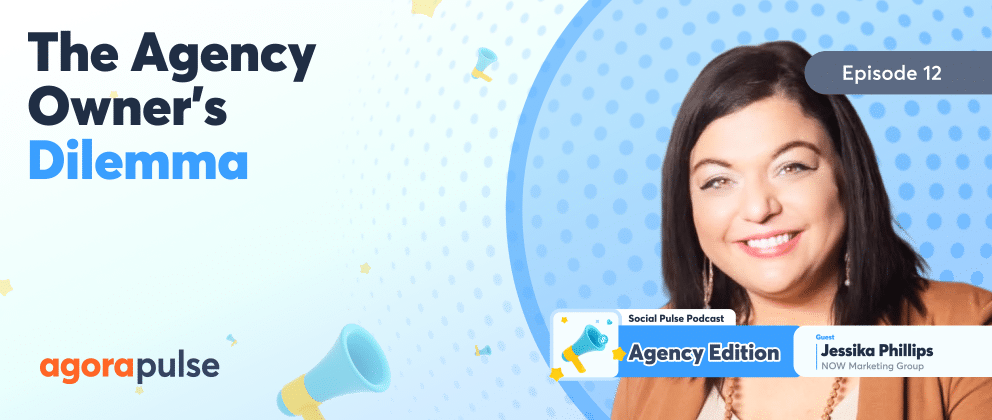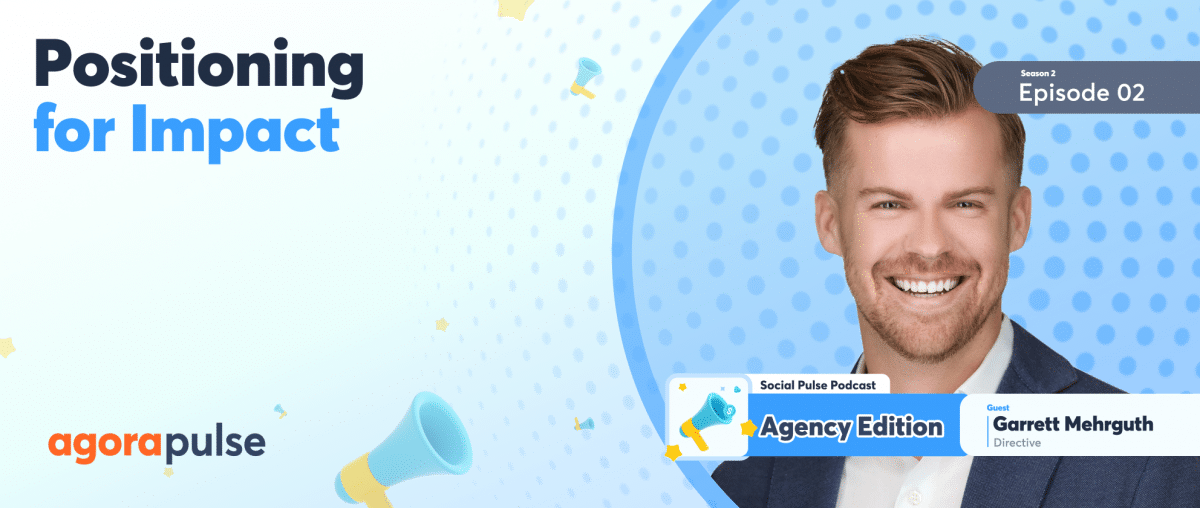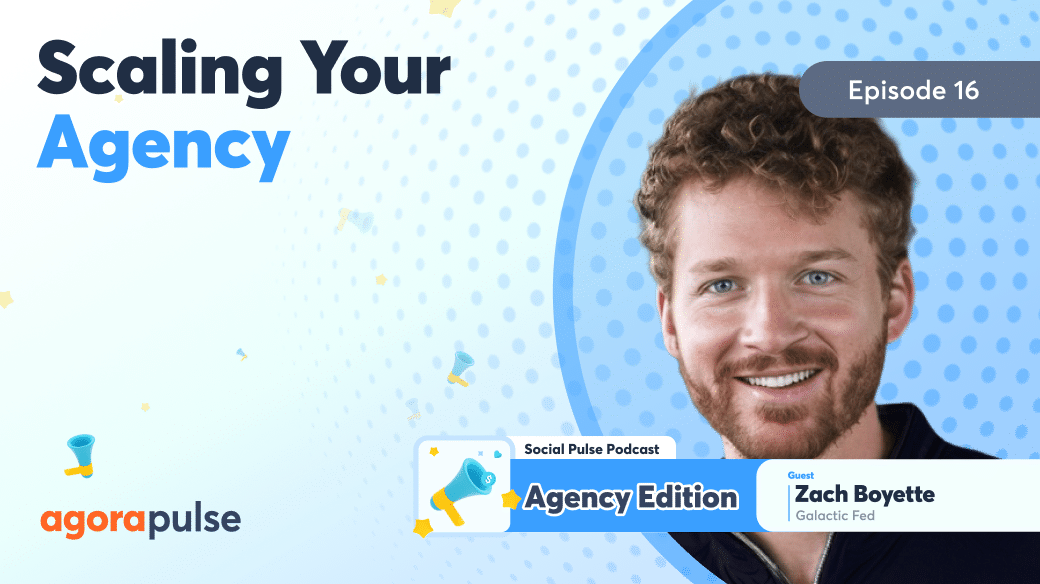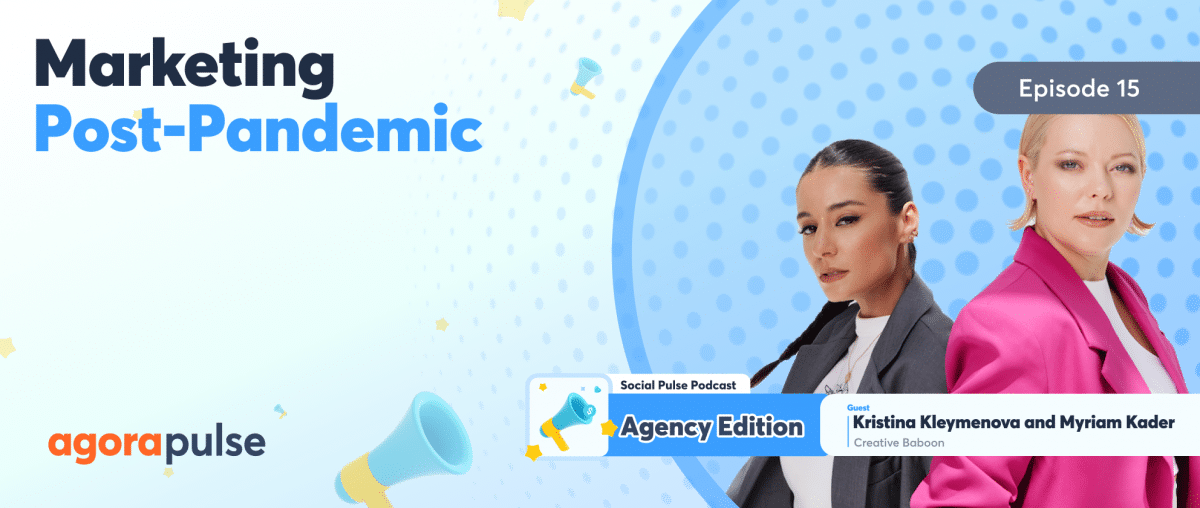Perhaps a partner started your agency years ago because you discovered you had a real talent and a passion for helping your business clients with certain aspects of their marketing. You brought on one client and then another before you knew it, you had a full blown agency up and running.
As you’ve hired more staff and brought on more clients, your workload has only increased. And you’re just as involved in the day to day of your operations as you were on day one, leaving little time to think strategically about your agency.
How do you train others to handle more of what you’ve been doing and what processes can you set up to help?
That’s exactly what Jessika Phillips is going to talk to us about in this new episode of Social Pulse Podcast: Agency Edition.
You can listen to the full episode here below or read on for the transcript.
Known as the queen of relationship marketing, Jessika Phillips is on a mission to redefine corporate America and create something she wanted to be a part of. Jessika founded Now Marketing Group in 2010 with only a laptop and a vision to give people with heart and upper hand. Her agency was recognized as an Inc. Best Places to Work 2022, is a Forbes recognized agency partner, partners with Facebook, Google, Agorapulse, and is a certified inbound partner with HubSpot.
What Is Now Marketing Group?
Mike Allton: We’ve known each other for years. It’s always a pleasure to chat with you, but let’s start by talking about your agency Now Marketing Group. Share more, if you would, about the kind of work that you’re doing today, the kind of clients that you serve, and what’s going on there.
Jessika Phillips: Now Marketing Group, as you mentioned, was founded in 2010 with the heart of helping our clients out-care the competition that’s stayed tried and true since 2010. But we like to call ourselves a relationship marketing agency that really helps our clients out-care the competition.
And we do so through helping them with website creation, social media, marketing, and management, as well as video creation and designing, and on a bigger aspect, more of the consulting and idea creation. Helping them really get started from the inside out with that manifesto. Identifying the personas and the best people that they can work with and who are really gonna help that momentum growth for them, that’s sustainable, but we like to work as an extension of our clients’ brands and help them out care the competition.
Outdoing Yourself (and Realizing You Can’t Do It All Alone)
Mike Allton: Love it. So, now after more than a decade of serving these clients, you want to replicate yourself.
Tell me about what that means and the challenges that you’re facing today as a sole owner and an executive of the agency.
Jessika Phillips: I should have remembered everything that I read from the E Myth, right? Like, I don’t know if you guys have read that book, entrepreneurs that are listening to this podcast, but if you’ve read the E Myth, they talk about this woman that’s a baker, and she loves baking.
She loves creating her very delicious and unique creations but then starts a business doing so and then realizes that, “Okay, there’s a lot more. that goes into doing a business than just baking, right?” You have your hands in the financial aspect of it. You have your hands in maybe hiring and firing or marketing and all the aspects that goes to running a business.
And I think that still is one of the challenges of running an agency is really duplicating yourself if you’re a visionary within your business, which most entrepreneurs are. They are that visionary. They have this dream that only sometimes they can see, and everything’s within their head, right? Like, “Here’s what I know that we can do really, really well.”
And that was me. I had this dream of redefining corporate America and what it would be like to really serve small, medium sized businesses and help them grow their small, medium sized business and see their dreams into fruition.
So when I started Now Marketing Group, it was easy. I had a few clients come in, and I was kind of doing the day-to-day by myself and doing the social media, helping with freelancers and people that we had brought in as clients. And then realizing very quickly that it’s not sustainable, being the visionary and person to see things forward, as well as doing the day-to-day.
You have to pick a lane and stay in what is really your zone of genius and hire people that can do it to support you and their zones of genius to really bring that dream to fruition.
So, I realized very early on: Although I thought I could do it all, you get burnout when you think you can do it all. As an agency owner or any business owner trying to wear all the hats, you do need some support, and you need to ask for it or figure out a way to get that support in order to keep moving forward or else you’re going to stay stagnant.
When exactly did it start to occur to you that you needed to make a change?
That you couldn’t just do everything yourself? And what were some of your initial steps?
Jessika Phillips: I think when it really occurred to me, it was when I realized that I was the bottleneck to growth, right? When people were coming to me with, “Oh, I need approval for this before I can do X.” And sometimes it was as simple as just making a quote, right? Like, making a quote for new business.
We pride ourselves on not having a sales rep, but Now Marketing Group has been great through word-of-mouth referrals—but it’s not great when your team that is getting these referrals because of the great work that they’re doing don’t even know how to quote somebody that’s asking for help.
And so I was a bottleneck to that. I became a bottleneck with so many areas of the business.
I just wanted to keep us growing a new service areas that we’re wanting to grow into and new ways that we can support clients and advertising avenues that were coming out there.
And that was the ah-ha moment, I’d say for me, with having so many emails in with people just needing an answer. And I’m like, “You know what? There needs to be someone else that can do this.” And also it left me with less time to do the things I enjoyed doing as part of the agency and put me in the position of. I’m doing the things that maybe I didn’t really enjoy doing, which was answering some of those questions again and again and again that were repetitive.
I just realized, “If there was a process in place, we could streamline this so much more efficiently and get answers to people so much more easily and keep the process moving forward from there.”
Mike Allton: I love that you identified yourself as the bottleneck. I think that just so incredibly demonstrates your self awareness and your awareness of the agency overall. To say that out loud is incredible, but it also made me realize that the solution in addition to streamlining processes is to hire.
Choosing the Right People for the Right Roles
Did you have to go through a financial exercise where you thought about, “Okay, how much is this person going to cost, and how much of my time are they going to save?”
Is that part of that process?
Jessika Phillips: Honestly, besides realizing that I was going to just focus in on the SOPs [Standard of Operating Process] that were, some of them were in my head. I’ve always been a planner and had an action list, but my note taking necessarily of my action list wasn’t something that I would consider an SOP that somebody else could immediately follow.
Third-Party Audit
- I wanted to clean that up first and foremost, but then I also needed someone else to come in, and I hired someone to come in and just interview the team, third party, that wasn’t just me. (My team and I, we have a great relationship—and I’m not just saying that—but they know how much I care. They often will tell me the feel good kind of things and not want to maybe say the things that are harder to say that are true.)
- I wanted a third party to come in and say that to them, “What kinds of things do we need to re-clean up?” And I also wanted this third party that I hired to re-interview team members in a way that would say who has really good leadership potential? Who has skill sets that are maybe organizational that could help me with these SOPs that I need to make sure more streamlined in the business? Where could they see gaps in the agency from the client coming as an onboarding client to us serving them ongoing and beyond? Like, where were there any friction points or areas that we could have added some extra delight?
- I wanted to get a fresh set of eyes on it because, in my head, it all made sense. Like, here’s what we do. Step one, step two, step three, step four. But not everyone had that clear vision, right? Of exactly what steps to follow without maybe reaching out to me to help transition from maybe a design process to then the social media management to the ongoing management, whatever that looks like.
- They [the third party] helped me see some things in the team members that were already there on my team and just a couple extra things that we could do to transition them from being an all star team member in what they are right now were already doing to potentially a leadership position, as well as looking at areas of growth. I know the people that were handling ads for at the very beginning were very small budget items, but there was such a great request.
- It would make sense financially to bring on somebody that is super experienced at managing ads and doing so effectively that were a lot smarter than me. And that’s their zone of genius. And it would be profitable in that.
- So that’s what we did. We hired somebody that was very specialized in ads, help them train another person that could be great at ads and to had the person that was really great at their job and even train the next person that could either take over their role so they could move up in a leadership role, but also just an overall growth mindset of: Where are we going from here? Like, nobody wants to just start in as a social media account manager and stay there, right? What is that path to growth, being a small business? Not only do you need that path for growth for your team members, so they stay there long term, which I’m so fortunate. I’ve had team members that have been with me the whole time that I’ve had the agency, and the average tenure is eight years, which is not usually heard of any, money each year thrown at them. Like, what’s that next challenge? What’s that next level?
To answer your question, again, I brought in a third party to evaluate the team ahead, look for areas that we could streamline, and then who could we bring in to fill those gaps or processes that we could bring in to streamline the gaps that we already had to make sure the process internally was successful.
Mike Allton: I hope everybody listening has written that tip down and considers how you could do that into your own agency.
Bring in a third party with a unbiased, unfettered view. Let them do anonymous interviews with folks, and get that real raw feedback on how you’re doing as an owner.
And some of it might be hard to listen to, but it’s going to be important to listen to if you’re going to grow your agency.
Building Your Own Tools
Are there other processes and tools that you’re putting in place now to help set your agency up for success in the longterm?
Jessika Phillips: We’ve put in so many since 2020. Honestly, like I said, that was my year of introspection and wanting to hear the hard truths and what we could do better and so we could continue to grow.
We actually got rid of a lot of tools. If I’m honest, we started building our own because I feel like I got into of, “Okay, this tool will solve this problem. Now this tool will solve this problem.” It’s like a Frankenstein system. Instead, we looked at what do we need as an agency? Like, what looks good for us internally?
Now, it’s a team portal that we can create where it has their time off requests, their everything, the knowledge base that they need access to all the tools that we’re using without having to remember it. And then also for our clients, what looks and works easily for them to have a very clear one place to go so we’re not telling them, “Okay, go check this Google Doc out for this, go check this out for that.”
We broke it down to exactly what we needed, and then we build it ourselves.
We built our own now client portal, which has everything each team member is working on in real time, how much time we’ve spent on transparency. Anytime there’s a new social update or something we need to communicate, it’s all done in the portal. It also sends them out a notification. It reminds them of the plan that they have, if they need anything, who to contact, everything in one spot, so they don’t have to hunt it down or remember it because as we all know, being business owners, there’s so many tools out there.
So we actually took a lot of the tools that we’re using and reduce the budget. Instead of investing in tools, we invested in people and also invested in our own tools that were very unique and perfect for us versus us trying to fit into another tool. The other thing I did, which was kind of bold, but I wanted to put it out there because again it was another bottleneck thing is put our pricing, everything on our pricing, completely on our website. You can go to our website and see the pricing, how it’s broken down, what’s included.
And we put videos of our process and how you get started. Everything streamlined, lined on there.
I just wanted everything to be out in the open.
Mike Allton: That is bold. I don’t know a lot of agencies that are doing that or talking about it that way.
And I loved your point about tools. In fact, listeners, I have a whole other podcast called the MarTech show and Season Two: Episode Four is going to be with Jim Williams, the CMO of UpTempo. The entire conversation is about how as marketers, we’re relying a little bit too much on technology, which is a little ironic coming from the CMO of a SaaS MarTech tool, but that’s the conversation we’re going to have. So if you’re kind of feeling like you might have too many tools in your arsenal here at the agency, check that out.
Advice for Agency Owners
Mike Allton: What advice do you have for other agency owners who haven’t yet gone through this process?
What might you have wanted your younger self to know?
Jessika Phillips: Do things earlier.
Don’t wait until it becomes an issue where you become a bottleneck. I know that’s easier said than done, but I would say one of the very first things now that I even coach clients on is coming up with their processes.
Write out even the most basic things. Your sales process that covers you from start to finish and the process and then beyond like your communication, writing it every step of the way, like I’m going to send them an email after this and an estimate and then look for ways to streamline, reduce friction and add to light and think about it for every process that you do.
So if you weren’t there, like any of us that are mothers, for example, the instructions that we write down for the babysitter, that kind of thing, it’s thinking about that: If somebody else were to care for your business and you were removed completely from the situation, how would you write down somebody to treat your baby, your business? What would you want them to know? How would you want them to handle it?
Give them the most detailed instructions for your SOPs as possible. Think about every instance of your business and what that looks like from hiring onboarding new clients, managing clients ongoing, even potentially letting clients go or team members go.
One other thing I hadn’t mentioned yet—but that’s a tool that we also brought in—which was our onboarding. Every new team member received the same exact training as each and every other single team member. And it didn’t require just me to do that training for them and to be able to offer mentorship. Now I have leaders in place, a CMO that I’ve hired, a VP that I’ve hired that can do the same exact things that I was the only one doing, which then I had to block out like two weeks of my time out of the office to train a new team member. Now that saved me time.
Write out every single process that you have from training new team members, hiring, bringing on clients and managing them, onboarding them, and beyond.
If you can write that out in detail and so somebody else can read it and follow it, you are going to thank yourself later. I wish I would have done it earlier, and I’m glad I have it now.
Measuring Success
Mike Allton: One of the things I love to ask every agency owner, because everyone’s a little bit different. I know you do a lot of organic social media, so I’m really curious:
How are you measuring the impact of all that work? How are you measuring the impact of social media on the business for your clients?
Jessika Phillips: Organic social is something that we take it in. We’re always measuring the engagement rate of the social content, as well as how many people are mentioning them in their social post, but the real things that really tell us the growth, not only are the reduced churn and increased buy in, repeat, referral business for clients, but it’s the situations that happen that just change.
- It’s a client’s birthday and they created for this restaurant, a birthday drink special to them. Not only did they get a ton of engagement just on this unique drink special, there was for this owner’s birthday, but people that came in and ordered it and took pictures around it and were proud to share it. That is the true measurement of organic growth. It’s the people that really care enough not only just to click that, but to click that like, then come in, participate, and then to share it again with somebody else. Take ownership of it. And they have this sense of belonging.
- Another example that happened last week, which was super unfortunate, is one of our team or clients they were unfortunately tragically killed, and we had their community show out and show out and not only outpouring of love and support for this company and their team that they lost, but also they showed up and asked, “How can we help? How can we support this GoFundMe? How can we share out and share the legacy of this team member?” It’s the people that care. I think it’s the caring aspect, whether they’re showing up with their money and showing up and ordering and buying and supporting and supporting a GoFundMe for their team, but also sharing the content and becoming part of the brand in that sense of belonging with them.
Some of those things are hard to measure when it comes to analytics, but you feel it, right? You can see it definitely in analytics and the numbers and things. And you can also feel it, see it, and experience it as part of a brand when it comes to organic that people do care about your messaging because they see that you care about what you’re putting out first as a brand.
That’s always our very first concern and motto.
And Now Marketing Group, like I said, we help our clients out-care the competition. And that’s what we measure back is how much does their community, their clients, their team members care about their brand too, because it’s a mirror, right?
I think it mirrors how much the brand cares first.
Don’t forget to find the Social Pulse Podcast: Agency Edition on Apple and leave us a review. We would love to know what you think. Until next time.
